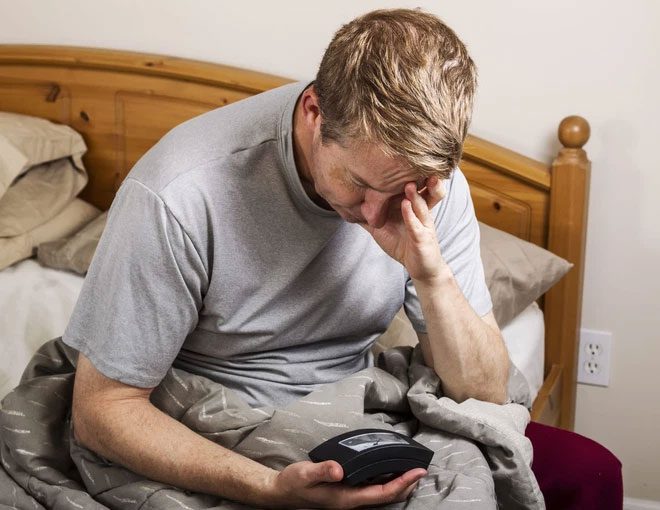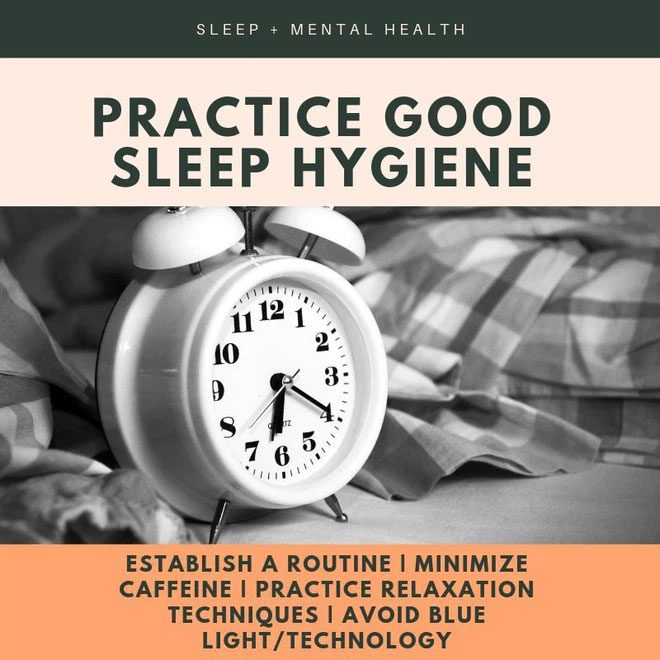Recently, while working with a 25-year-old man struggling in his job, psychologist John Duffy asked him a question he often poses to his clients: Are you sleeping well?
This young man was having difficulty thinking clearly, had taken multiple days off work, and ended a relationship with his girlfriend because he had been indifferent toward her. He had been diagnosed with both depression and anxiety, feeling lost in life. Before meeting Dr. John, he had undergone treatment for several years, trying medication to address his depression, anxiety, and attention issues, but nothing seemed effective.
In response to John, he revealed a “terrible” sleep history, but Dr. John was not surprised. His client was sleeping only 4-6 hours each night throughout the week, staying up until 2 or 3 AM on social media or glued to a TV show. He attempted to catch up on sleep during the weekends, but sometimes, waking up left him feeling even more fatigued.

How long you sleep depends on your age.
His sleep patterns had been established since childhood and followed him into adulthood. As psychologist John Duffy gradually changed this patient’s sleep habits, increasing his sleep time during the week and setting a fixed bedtime and wake-up time, the patient’s symptoms began to diminish. He reported experiencing almost no depression or anxiety within two months. John’s primary interventions involved altering the patient’s sleep habits.
Mental Health and Sleep
Sleep patterns are closely correlated with our emotional health. Adults should aim for at least 7 hours of sleep each night. However, according to the U.S. Centers for Disease Control and Prevention (CDC), 1 in 3 people do not achieve this minimum amount of sleep.
How many hours of sleep do I need? It depends on how old you are.
When John asked his patients to track their rest time, they realized they were sleeping far fewer hours than they thought. Poor sleep patterns can lead to stress, which contributes to anxiety, depression, and our ability to concentrate.

Poor sleep also disrupts and affects emotional health. (Photo: Life Line Connections)
Additionally, poor sleep disrupts participation in activities that reinforce emotional health. In fact, teenagers with irregular sleep patterns during the week may experience “social jet lag” starting Monday morning, causing them to fall behind both academically and socially with their peers. This not only leads to decreased learning ability but also makes them lazy, absent from school, and lacking motivation in their studies. Expert John Duffy finds this decline in capability and enthusiasm is also true for his adult clients.
| Dr. John uses the term “social jet lag” to describe the phenomenon of social jet lag, which occurs when the body’s biological clock and daily rhythms are misaligned due to disruptions in daily living. An example of this phenomenon is our tendency to sleep later and wake up later on weekends, during holidays, or after late-night parties. |
Ultimately, countless families that John works with experience chaotic evenings filled with conflicts, chores, and tasks that occur late at night. Diverse TV programs also contribute to the excessive instability and chaos in many households.
According to John, developing better sleep habits is one of the quickest and most effective ways to improve mental health for individuals and families.
Here are some feasible ways to quickly improve sleep at home that John shared with CNN.
Leave Devices Behind
Countless clients of John’s end their day in bed staring at mobile devices, scrolling through social media content or watching movies. In recent years, smartphone addiction has become a common issue in therapeutic practices.
According to a recent study of college students published in Frontiers in Psychiatry, smartphone addiction can lead to sleep difficulties, especially when we use our phones late into the evening.
That’s why John encourages his clients to keep mobile phones and other screen devices out of the bedroom, opting instead for a book, calming music, or meditation music. Mindfulness exercises can also be beneficial even for young children.

Meditation is one of many healthy exercises for the mind.
John finds that this single change has quickly improved sleep while also alleviating some symptoms of emerging emotional issues. Eliminating loud music, bright lights, and other stimuli from the bedroom is also beneficial.
Create Conditions for Good Sleep
John believes that families tend to share sleep habits, meaning that sleep routines can be quite consistent within a family, whether good or bad. Therefore, you can create a good sleep environment to set an example for other members. If you want to see your children or spouse get better sleep, establish clear bedtimes for them and yourself. The same goes for wake-up times.
Consistency will help everyone develop good sleep habits quickly, and don’t be discouraged if this change happens slowly. Just as building poor sleep habits takes time, developing better sleep conditions also requires time. Make changes gradually, such as moving bedtime earlier by 15 to 30 minutes over a week. Over time, you will find yourself getting the sleep you need without the fear of abrupt changes.

Sleep comes easier for those who incorporate exercise into their daily routine.
Perhaps the most effective method for improving sleep is incorporating exercise into your day. A survey by the National Sleep Foundation shows that those who regularly engage in vigorous exercise are nearly twice as likely to report consistently high-quality sleep. And sleep comes easier for those who make exercise a part of their daily routine.
Think of sleep as a process that begins at least an hour before you actually go to bed. Create an open atmosphere in your home. Enjoy a light episode of a favorite family show. Spend some time reading. Dim the lights, and establish a late evening routine separate from the rest of the day. These powerful interventions will help create an ambiance conducive to sleep and relaxation.
The Present is Most Important
Many sleep issues become more apparent at the start of the new school year. As children tend to start the school year with poorly regulated sleep, gradually pushing back bedtime can quickly resolve sleep problems.
According to John, if he can get a teenage client to sleep half an hour earlier on more nights, their symptoms will gradually diminish, and their abilities in school, learning, sports, and other extracurricular activities will significantly improve.
When sleep improves, John’s adult clients experience less depression and anxiety, are more clear-headed at work, and feel more energized throughout the day.
Make these changes now to develop better family sleep habits, managing depression and anxiety for yourself and your family throughout life.
| The author of this article, clinical psychologist John Duffy from Chicago, has nearly 20 years of experience working with teenagers, parents, couples, and families. He is also a familiar face on local and national television, frequently cited in print and online media in the U.S. |



















































